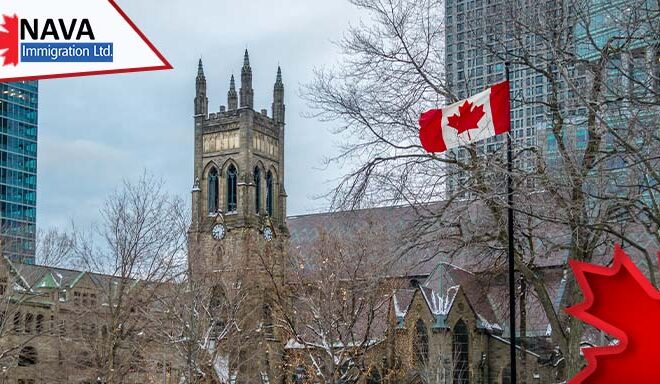Canada Launches A New Pilot Project For Rejected Study Permits
Canada launches a new pilot project for rejected study permits. Canada’s federal court announced the Study Permit Pilot Project, designed to streamline the process of requesting judicial review of rejected study permit applications. The program launches on October 1.
Under the Pilot, individuals who apply for leave and judicial review of their study permit refusals might be able to complete the entire procedure in under 5 months, rather than the current processing time of 14-18 months. Also, an application for leave and judicial review is a process where an individual seeks permission from the Federal Court of Canada to challenge an immigration decision.
Under normal procedures, a judge first decides whether to grant leave to the candidate to proceed with a judicial review. If this leave is granted, then the case of judicial review is heard and assessed on its merit. Under the new Study Permit Pilot Project, requests for leave and judicial review will be considered at the same time.
Moreover, there is no additional fee for opting into the project, although filing for leave and judicial review costs $50.
Who Is Eligible?
Canada launches a new pilot project for rejected study permits. But first one needs to know whether they are eligible or not.
Well, students might be eligible for the program if they applied for a study permit, and obtained a letter of refusal from IRCC. Other criteria include:
- Both the prospective student and IRCC opting into the pilot project
- Both parties agree on the underlying facts, as evidenced by the application materials submitted to IRCC by the candidate, including the full reasons for the IRCC decision
- The facts or issues of the case – either the initial study permit application, the refusal from IRC, or both – being straightforward
- The candidate does not have to request an extension of time to file the Application for Leave
- The parties not using affidavit evidence
Study permit applicants applying from within Canada have 15 days from the day they obtained their study permit application refusal to apply under this new initiative. Candidates applying from outside Canada have 60 days from the day they obtained their study permit application refusal to apply.
How To Apply
All documents have to be filed online using the court’s electronic filing system. To opt in, applicants have to file an application for Leave and Judicial Review using Form IR-1 and mention the Pilot Project in three specific places of application.
Also, after filming documents, a judge will decide on the application and notify the candidate.
Why Are The Federal Court and IRCC Taking These Measures?
Canada launches a new pilot project for rejected study permits. In its press release, the Canadian Federal Court cited an increase in leave and judicial review requests as a key reason behind the start of its joint Pilot with IRCC.
‘The Federal Court is on track to obtain 24,000 immigration filings by the end of December. That is approximately four times the yearly average the Court experienced in the five years immediately preceding the COVID-19 pandemic.’
There has been a wave of new policies around Canada’s admittance of new international students as well as graduates in 2024. The nation’s immigration department seeks to respond to affordability and housing stock pressures by reducing the number of temporary residents.
Moreover, in January, IRCC declared the first-ever cap on international students. In addition, it limited the total number of newly issued study permits to 485,000 in 2024. Initially a temporary policy, this change applied to most undergraduate and college students. Based on this new cap, the federal government proceeded to assign international student allocations to each provincial and territorial government.
Moreover, in a recent update to these policies, Immigration Minister Marc Miller held a press conference on September 18. He restated his commitment to the international student cap and declaring several additional measures, including:
- Reducing the targets of newly issued study permits by 10% from 2024 – to 437,000 new study permits in 2025
- Adding a language eligibility criterion to the issuance of Post-Graduation Work Permits to international graduates based on their level of study
- Including master’s and PhD students in the revised targets
- Limiting eligibility of PGWPs for college students to those who are studying in a program linked to an area of high-labor demand
- Limiting the eligibility of Spousal Open Work Permits for spouses of master’s students based on the length of the education program
If you seek information on how to begin your Canada immigration application process, you can talk to our NavaImmigration experts at 1800-918-8490. You can also drop us an email at [email protected].





